
The Dennis A. Hunt Fund for Health Journalism supports ambitious reporting that spotlights inequitable conditions that harm families and communities across America. Support from the Hunt Fund has led to acts of Congress and new state legislation and sparked important community conversation that build momentum for changes around long overlooked chronic ills.
The Fund honors the late Dennis Hunt, a visionary communications leader and former vice president of communications and public affairs at The California Endowment, California's largest health foundation. Family members, friends and colleagues of Dennis established the Fund after his death in 2007 in recognition of his belief that journalism could change public perceptions about community health and influence policy. He was a regular participant in the Center for Health Journalism's learning institutes. In his honor, each year, five to 10 journalists receive grants of $2,500 to $10,000 to undertake ambitious health reporting projects about challenges facing underserved communities and ways to address them.
Hunt grantees traveled to the Midwest during the pandemic to report on the deadly conditions confronting Pacific Islanders who died in disproportionate numbers after working in high risk meatpacking jobs during the pandemic. That reporting helped to bring about an act of Congress that granted them Medicaid insurance. Hunt grantees have done environmental testing for toxic hazards in Philadelphia's poorest schools, leading to tens of millions in state and local investments to remove lead and asbestos. More recently, reporting supported by the Fund led to the federal ban of a Section 8 apartment owner whose poor maintenance of an apartment complex led to two deaths from a gas leak in a small town in Mississippi. Hunt grantees also have conducted scientific testing to assess "the body burden" of a family exposed to chemical hazards, crisscrossed the country to understand the impact of the Affordable Care Act and engaged ordinary people to try to halt the childhood obesity epidemic in West Virginia.
A new federal administration could reshape social welfare and health care benefits for low-income Americans in 2025, making reporting supported by the Hunt Fund more essential than ever.
Your donation will be doubled through Dec. 31. Help us to support investigative journalism that can save lives.
Double your impact! Every dollar you donate through Dec. 31, 2025, will be matched!
Click the Double Your Impact button or text “HUNTFUND” to 41444 to make a tax-deductible donation.
Or simply text “HUNTFUND” to 41444
Alternatively, you may send a check made out to University of Southern California, with “USC Hunt Journalism Fellowship Fund” in the memo field, to:
Notable projects supported by the Hunt Fund over the years
“Access Denied,” San Antonio Express-News
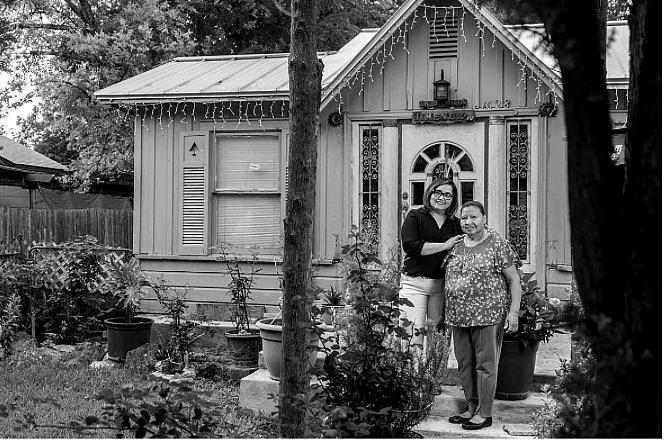
In San Antonio, your health, as well as who will live and who will die, is influenced by where you live. That came into stark relief during the pandemic when people on the city’s Latino South Side had more than double the COVID-19 mortality rate of Bexar County overall, according to an investigative series by then health reporter Laura Garcia. By analyzing census and COVID-19 data, she found that COVID-19 cases and death rates were far higher in historically redlined Latino neighborhoods where medical facilities are scarce.
Bexar County leaders cited Garcia’s 2022 reporting as evidence that more needed to be done to remedy a history of neglect and underinvestment that contributed to poor health outcomes. Citing Garcia’s reporting, the county executive announced plans to create a public health division for South Side residents. Garcia’s coverage led to other new investments aimed at improving access to care in the neighborhood, including plans to build two new hospitals in medically underserved neighborhoods on the city’s Southwest Side and Northease Side and $2 million a year in new public health funding to overhaul health care in those communities. The Bexar County initiative brought with it a new public health director in the overwhelmingly Latino South Side, a network of health centers and better coordination of the county’s health-related services. The Texas Medical Association, whose annual journalism awards recognize outstanding reporting about health issues, awarded “Access Denied” first place in their In-Depth Print/Online News award category. As for Laura herself, the project helped draw attention to her talents. “Being a National Fellow was really the sole reason the “Access Denied” project came to life,” she said. “This program was the reason I was given the green light to investigate health inequities in San Antonio.” Laura is now editor of the non-profit San Antonio Monitor. “This project not only made an impact in my city in the way public health resources were allocated, but also helped bring me more visibility that helped my career,” she said.
Investigation on “unsafe, unlivable conditions” among displaced apartment residents in Cleveland, Mississippi, The Mississippi Free Press
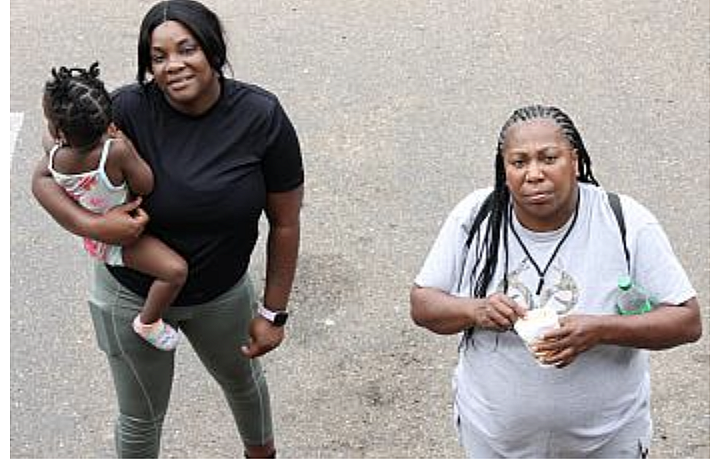
After a gas leak killed a mother and her 5-year-old daughter in a Cleveland, Mississippi, apartment complex in August 2022, residents of the 136-unit building were forced to move to motels while emergency repairs were made. Nick Judin’s investigation for the Mississippi Free Press raised awareness of the situation and allegations that management was aware of the gas leak and did not address it. Judin reported that when residents returned to the apartment complex a month later, they encountered “horrific” conditions, with no gas or water and food left rotting in their apartments. In the wake of Judin’s reporting, the housing project company has been banned by the Department of Housing and Urban Development from receiving any new HUD contracts and the agency raised allegations of serious financial mismanagement against the company and its CEO. Judin received the Garrick Feldman Community Journalism Award at the 2023 Society of Professional Journalists’ Diamond Awards for his Fellowship project, which the judges described as “the kind of incisive and insightful reporting one hopes for from local reporting.” One judge added: “I was deeply impressed by Nick’s empathetic writing and aggressiveness in chasing the story.”
“Dangerous Deliveries,” Capital B
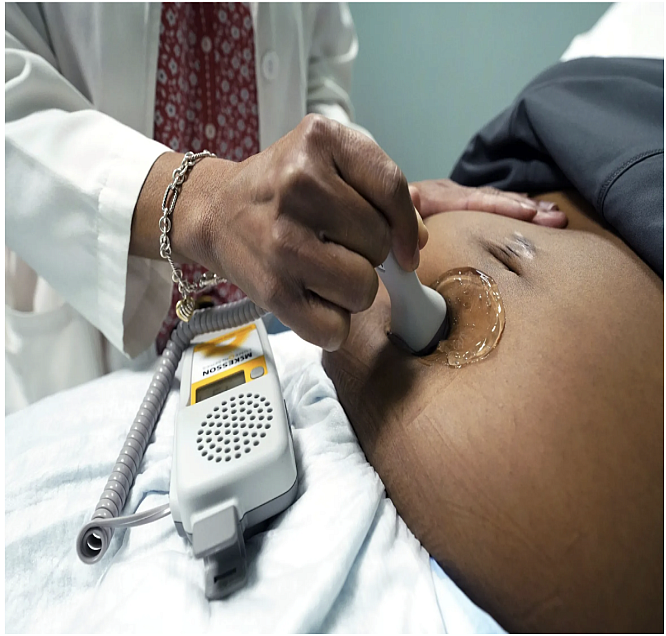
In rural Georgia, poor access to obstetric care has left Black mothers more likely to die or face serious birth-related health complications. Many have to travel long distances for maternity care, often resulting in traumatic birthing experiences, reported Margo Snipe. Her investigative series revealed that rural Black women faced the worst access to maternity care in the state, one factor in difficult birth outcomes. Rural hospital closures have reduced the number of labor and delivery units, while bureaucratic hurdles have made it harder for new facilities to open. This has left many Black residents feeling abandoned by the health care system and prompted calls for urgent reform. Following Snipe’s reporting, several bills were introduced to address the problem spurring legislative debate. Currently, the state’s legislature is exploring reform options.
"Toxic City," Philadelphia Inquirer and Philadelphia Daily News

In Philadelphia, children were being poisoned every year from lead-contaminated dust and paint chips – in schools, old homes or the playground around the block. Barbara Laker and Wendy Ruderman documented the toll on thousands of the city's children – lower IQs, lifelong learning and behavioral problems, seizure disorders and many other serious health effects.“The Toxic City: Sick Schools” was a Pulitzer finalist and winner of The Gannett Award for Innovation in Watchdog Journalism and exposed severe environmental hazards in Philadelphia schools – including asbestos, lead paint, mold, and lead in water. Their reporting found how schools in low-income neighborhoods faced worse conditions when it came to these hazards. The entire three-year investigation, which also earned finalist status for the Goldsmith Investigative Reporting Prize. The reporting spurred then Gov. Tom Wolf to allocate $15.7 million to a state-funded school cleanup, led to new safety legislation, and a $100 million donation from the University of Pennsylvania to remediate environmental hazards highlighted in the reporting. Within days of publication of their first package of stories, Philadelphia lawmakers and activists demanded action to reduce exposures. And the Philadelphia mayor announced a crackdown on landlords who fail to certify that their properties are lead-safe before renting to pregnant women or families with children 6 or younger. Then Gov. Tom Wolf also pledged to take action, directing millions to repair schools and seeking to levy Laker and Ruderman reported that three out of four soil samples taken in more than 100 locations – parks, playgrounds, and backyards near former lead smelters in Philly – had hazardous levels of lead contamination. They also found that many children were poisoned by lead from the soil. As a result, the state Department of Environmental Protection did its own tests at one site, confirming the team's finding, and announced that the levels were “unacceptable” and that it had entered into a clean-up agreement with the site’s owner.
Irradiated, Cheated and Now Infected: America’s Marshall Islanders Confront a Covid-19 Disaster, Politico
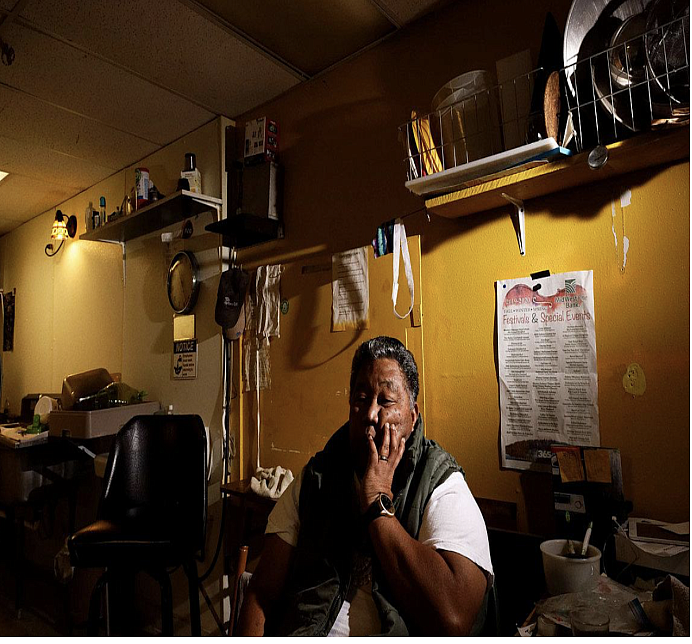
The COVID-19 pandemic hit hardest for Marshall Islanders in the U.S., with one Arkansas community facing hospitalization and death rates over 60 times higher than that of white residents. Dan Diamond’s 2020 investigation highlighted how a legislative error in a decades-old law meant that US-based Marshallese lost access to promised Medicaid benefits. This exclusion led to high uninsurance rates and contributed to untreated chronic diseases and poor health outcomes in these communities. During the pandemic, the lack of insurance proved deadly. Diamond’s reporting was credited with helping win the passage of an act of Congress in December 2020 that reinstated the Marshallese community’s right to Medicaid coverage, marking a historic success after more than 20 attempts.
"A deadly and preventable disease," Seattle Times
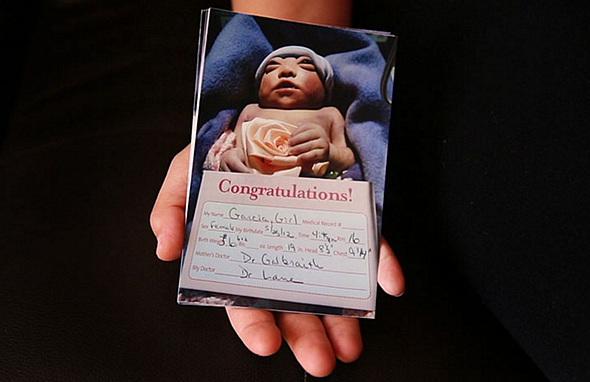
More than 40 babies have died because of a rare and deadly birth defect in three Central Washington counties since 2010, and by some measure, state and public health officials' response has been sluggish. As a result of questioning by our Fellow, JoNel Aleccia, a reporter with the Seattle Times, state Medicaid officials decided to begin paying for folic acid supplements for women of child-bearing age, rather than just pregnant women, since a folic acid deficit is linked to the condition. Here’s a package of stories on the problem and promising solutions (published in English and Spanish). We are also supported a community engagement effort that involved a large public gathering in the upstate Washington community that is most affected by the crisis. Aleccia's reporting spurred 40 members of Congress, led by U.S. Rep. Jaime Herrera Beutler, R-Camas, to sign a petition urging the Food and Drug Administration to permit the fortification of corn masa, a staple in Mexican American's diet, with folic acid, which some scientists believe could reduce the incidence of neural tube defects in Hispanic babies. Two months later, the FDA took action on a proposal to permit fortification that had originally been under review for four years.
"Seat Them Safely," The Arizona Republic
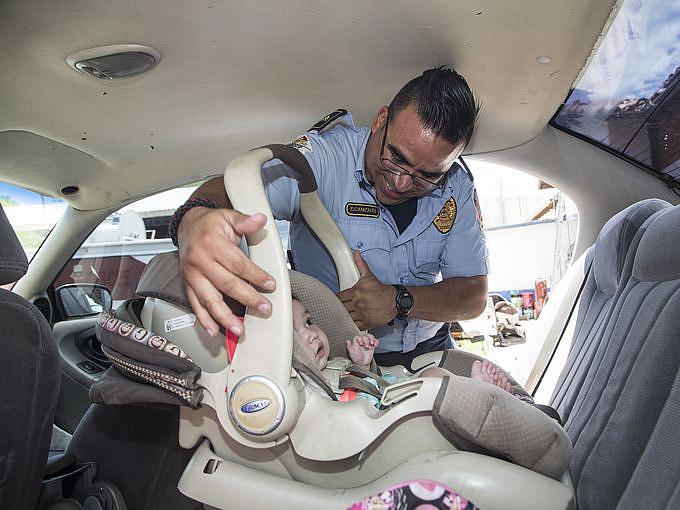
As the border reporter for the Arizona Republic, 2014 Hunt Grantee Bob Ortega had noticed the low rate of carseat usage by Hispanic parents transporting their kids. With the help of a 2014 Dennis Hunt Fund grant, Bob spent a year on a series, "Seat Them Safely," that documented the extent of non or improper usage and the tragic consequences: Latino and Native American children dying or sustaining serious injuries at disproportionately high rates. In addition to chronicling the problem, Bob and his colleagues put together a coalition of civic and religious groups to create a stand-alone nonprofit organization to carry out an ongoing campaign of fundraising, education and outreach on the issue. The group secured a $25,000 matching grant from a local foundation to match readers' contributions to promote safer car-seat use, training events and donations of seats. Eight car-seat technicians took calls from parents during a telethon on Univision and reported that they were stunned by the level of requests for seats or people asking where they could have their seats checked for proper installation. The Phoenix Fire Department received more than 300 similar requests in the first three days after the series began, versus a normal daily volume of fewer than 10 calls. Horizonte, a show on the Arizona PBS, broadcast a 26-minute story about how the coalition came about and what it's impact has been. Sixonths after Ortega's project appeared, the Arizona Governor’s Office of Highway Safety announced that it would boost funding by more than $407,000 for programs to address child car seat safety in that state by providing more than 2,460 car seats to needy families.
"Poor Health," Pittsburgh Post-Gazette
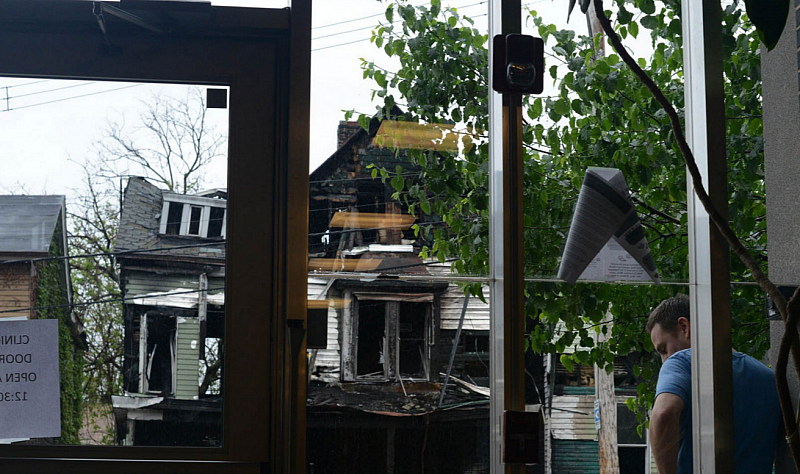
Sean Hamill, a reporter for the Pittsburgh Post-Gazette, had wondered for years where people in some of the old steel towns surrounding Pittsburgh got their health care after their local hospitals closed. With help from the Hunt Fund, his data-rich multimedia project, "Poor Health," "chronicled the failure of the remaining hospitals to provide adequate care to low-income patients and the inability of free and government-funded clinics to fill the gap." Hamill wrote in an essay for ReportingonHealth, our online learning community: "Our series revealed a simple truth: The poor continue to have difficulty accessing health care in one of the most medically advanced cities in the world. How to solve that problem is something I will continue to pursue with my current and future work." Hamill's series sparked efforts by concerned community members and medical practitioners to think about how to patch the holes in the area's frayed health care safety net.
"68 Blocks: Life, Death Hope," The Boston Globe
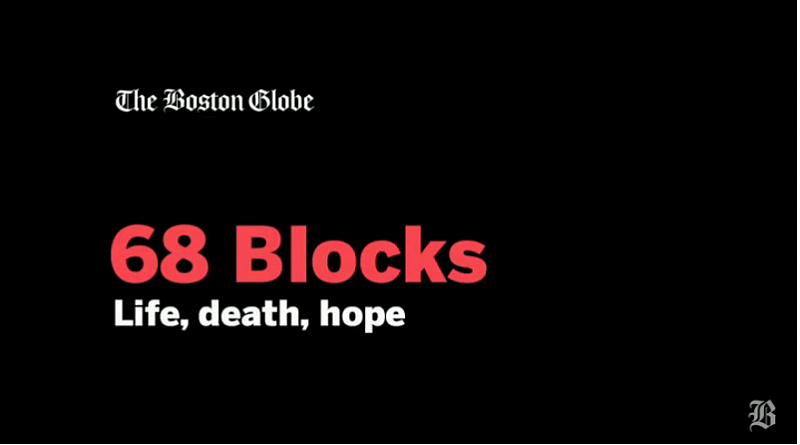
Steven Wilmsen, enterprise editor for the Boston Globe, directed a team of reporters to look from the inside out at the causes and impact of violence on a neighborhood. In 2013, the paper rented an apartment in the Bowdoin-Geneva neighborhood of Boston and embedded several reporters and photographers there. Bowdoin-Geneva had been wracked by gang violence for years, and no interventions seemed to help. The resulting interactive series, "68 Blocks: Life, Death Hope," showed that the neighborhood was more than a collection of crime statistics and described a rich tapestry of community life despite the near-constant threat of violence. The project won a first place "Salute to Excellence" award from the Association of Black Journalists, the Radio Television Digital News Association’s UNITY award and the Online News Association’s Knight Award for Public Service. It also sparked wide-ranging conversations in the neighborhood and in journalistic circles about whether embedding journalists in a disadvantaged neighborhood was an ethical approach to storytelling. In an essay for ReportingonHealth, Wilmsen reflected on the lessons learned. "After publication, it became much clearer what had been gained, both in terms of content and good will," he wrote. "People who were featured in the series were deeply grateful for what they said were sensitive and complex depictions of the way they live and the issues they face. They, along with the vast majority of readers who wrote or called the Globe about the series, including a number who live in the neighborhood or who grew up there, said the fact that the Globe elected to live there showed a kind of commitment that was rare and that mattered."
"The Shape We’re In," The Charleston Gazette

Kate Long of The Charleston Gazette undertook a powerful yearlong exploration in 2012 of the effects of childhood obesity in her home state, West Virginia, which has the highest rates of adult and child obesity in the country. Drawing from the latest research as well as the community for successful examples of change, her 60+ story multimedia project, "The Shape We’re In," included scores of stories and multiple collaborations and prompted actions from legislators, educators and the medical establishment. As a result of the project, a local foundation committed funding to Try This West Virginia: Building Blocks for Health Communities, which Long leads today, to help community leaders share best practices. "The Shape We're In" earned the top award for public health journalism from the Association of Health Care Journalists and led to Long being named West Virginian of the Year by the West Virginia Health Kids and Families Coalition.
Understanding the Body Burden, Center for Investigative Reporting
Janet Wilson, a freelance writer, received two Hunt grants -- in 2009 and 2011 -- to undertake an innovative reporting project for the Center for Investigative Reporting and the bilingual Eastern Newspapers Group, Understanding the Body Burden. To test her hypothesis that families living downwind from industrial plants in Maywood, California, were being affected adversely by air and water-borne pollutants, Wilson teamed up with doctors and research scientists to conduct extensive “body burden” tests on the members of a representative family. The tests found that some of the family members had traces of heavy metals in their blood, probably due to emissions from the area's industries, which put them at high risk for health problems. The project helped spur clean water legislation in California.
Click the Double Your Impact button or text CHJ to 41444 to make a tax-deductible donation.
